
WES Global Talent Bridge Resources
Browse resources, including fact sheets, policy briefs, and toolkits, from WES Global Talent Bridge and other WES partners.

Reports and Research
WES Global Talent Bridge Reports and Research
Browse reports and research-based resources from WES Global Talent Bridge and the IMPRINT Coalition.

Events and Training
WES Global Talent Bridge Events and Training
Browse live and on-demand training events and webinars from WES Global Talent Bridge and the IMPRINT Coalition.

Career Pathways Guides and Resources
WES Career Pathways Guides and Resources
WES Career Pathways e-guides and additional resources provide guidance to internationally trained immigrants and refugees who are seeking to use their international education and experience in the U.S.
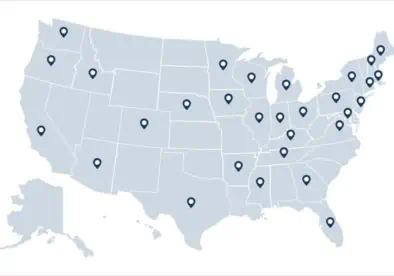
U.S. Program Map
Mapping Programs and Services That Support Internationally Educated Immigrants and Refugees
The WES Global Talent Bridge U.S. Program Map features more than 100 programs and services that foster the economic and professional advancement of internationally trained immigrants and refugees in the U.S.
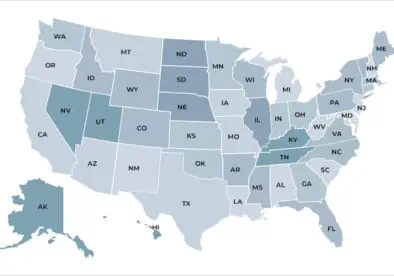
U.S. Data Tool
Interactive Resource Featuring National- and State-Level Workforce Data on Skill Underutilization
Our interactive U.S. Data Tool features national- and state-level data on the underemployment and skill underutilization of college-educated immigrants in the U.S. You can filter by state to compare the data.
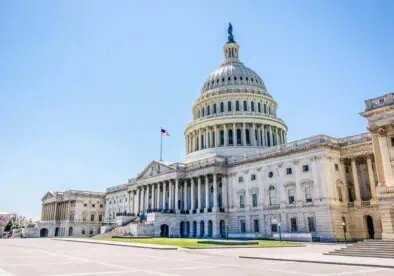
WES U.S. Policy Tracker Map
Tracking Policies to Promote the Economic Integration of Internationally Trained Immigrants and Refugees
The WES U.S. policy tracker map monitors state and federal policies aimed at reducing barriers to employment for immigrants and refugees with international credentials.

Group Mentoring for Immigrant and Refugee Professionals
Group Mentoring for Immigrant and Refugee Professionals
Discover 12 steps to launching a successful group mentoring program for immigrants and refugees. These programs offer employers new ways to tap into hard-to-access talent pools, while providing job seekers an effective way to enhance networks and build the knowledge and soft skills they need to achieve their career goals.

How Community Colleges Can Support Internationally Trained Immigrants and Refugees
How Community Colleges Can Support Internationally Trained Immigrants and Refugees
This resource from WES Global Talent Bridge provides an overview of steps community colleges can take to support internationally trained immigrants and refugees in the United States. The steps include ensuring credential evaluation, offering tailored language and workforce training programs, providing career guidance, developing partnerships, and facilitating networking opportunities. The resource features helpful references and offers examples of community colleges that have modeled successful approaches to immigrant and refugee inclusion.

2023 State Policy Review
2023 State Policy Review: Strengthening Workforces Through Immigrant and Refugee Inclusion
This report reviews state-level policy reforms enacted in 2023 to advance more equitable educational and workforce opportunities and outlines inclusive measures that state policymakers can promote during 2024 state legislative sessions and beyond.
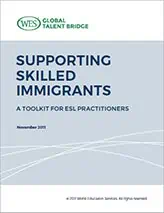
Supporting Skilled Immigrants: A Toolkit for ESL Practitioners
Supporting Skilled Immigrants: A Toolkit for ESL Practitioners
Supporting Skilled Immigrants has been developed for ESL practitioners who teach internationally educated immigrants. It will also serve as a useful guide for anyone who advises or works with internationally educated immigrants.
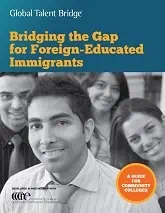
Community College Guide
Bridging the Gap for Internationally -Educated Immigrants
The WES Global Talent Bridge Community College Guide highlights effective program models and promising practices from community colleges across the country

Recognizing the Role of Internationally Trained Health Workers Beyond COVID-19
Recognizing the role of Internationally Trained Health Workers Beyond COVID-19: Key Lessons for Long Term Change
In response to the urgency of the COVID-19 pandemic, governors in six states issued executive orders that allowed internationally trained immigrant and refugee health workers to pursue temporary licensure and practice. Read more about these policies and how they highlight the need for permanent policy solutions that address the barriers to employment that internationally trained immigrant and refugee health workers face in the U.S.

Opening Pathways to Practice for Internationally Trained Physicians
Opening Pathways to Practice for Internationally Trained Physicians: State Policy Options
Internationally trained physicians, or IMGs, often face significant barriers to health care workforce reentry in the United States due to systemic barriers to licensure. Some states have taken steps to address such barriers. This brief provides an overview of state policy models to open pathways to licensure.

Advancing an Inclusive Economic Recovery
Advancing an Inclusive Economic Recovery: Top Five Policy Priorities for 2022
Federal, state, and local policymakers have the opportunity to prioritize efforts to ensure that immigrants, refugees, and international students can achieve their educational and career goals in the U.S. Read more about WES' five policy priorities for 2022.

Fact Sheet: Bridging the Gap for New Americans Act
Fact Sheet: Bridging the Gap for New Americans Act
The bipartisan Bridging the Gap for New Americans Act, H.R. 6715/S. 3157, makes progress toward strengthening our workforce and promotes the economic mobility of internationally trained immigrants and refugees. Learn more about how this bill seeks to address the barriers impacting immigrants and refugees as they rebuild their careers in the U.S.

#UntappedTalent: Inclusive Economies for All
#UntappedTalent: Inclusive Economies for All
The IMPRINT Coalition’s #UntappedTalent campaign advances policies that are inclusive of all workers and open pathway so that everyone has a fair chance of reaching their educational and career goals. Learn more about the campaign and how to get involved.

Supporting Immigrants and Refugees through Connector Program Models
Supporting Immigrants and Refugees through Connector Program Models
Connector Programs focused on supporting the economic integration of immigrants and refugees started in Halifax, Nova Scotia more than a decade ago. Created as a unique workforce development initiative, this model supports immigrants and refugees in building their professional networks in the United States.

How States Can Address the Nursing Shortage
How States Can Address the Nursing Shortage: Advance Opportunities for Internationally Trained Nurses
Policymakers can open pathways for internationally trained nurses to rejoin their careers by standardizing and streamlining four key areas: English language proficiency assessment, credential evaluation, licensure by endorsement, and alternative pathways to licensure.

State Policy Priorities for 2023
Advancing the Economic Inclusion of Immigrants and Refugees: State Policy Priorities for 2023
WES offers five policy priorities for 2023 that can serve as a roadmap for states interested in promoting economic inclusion.

How Educators Can Support Internationally Educated Immigrants
How Adult Educators Can Support Internationally Educated Immigrants and Refugees
This resource from WES Global Talent Bridge provides an overview of barriers to economic mobility faced by internationally trained immigrant and refugee ELL students, recommendations for adult education practitioners and administrators, and descriptions of program models that support this student population.

Obtaining Federal and State Funding to Pay for Credential Evaluations
Advancing Immigrant Inclusion: A Practical Guide to Obtaining Federal and State Funding to Pay for Credential Evaluations
A credential evaluation report is an important part of an internationally educated individuals’ ability to make full use of their skills and training in the U.S. States and local communities across the country have developed methods of directing existing federal and state funding to finance credential evaluations for their internationally educated immigrant and refugee residents. WES has identified three replicable models.